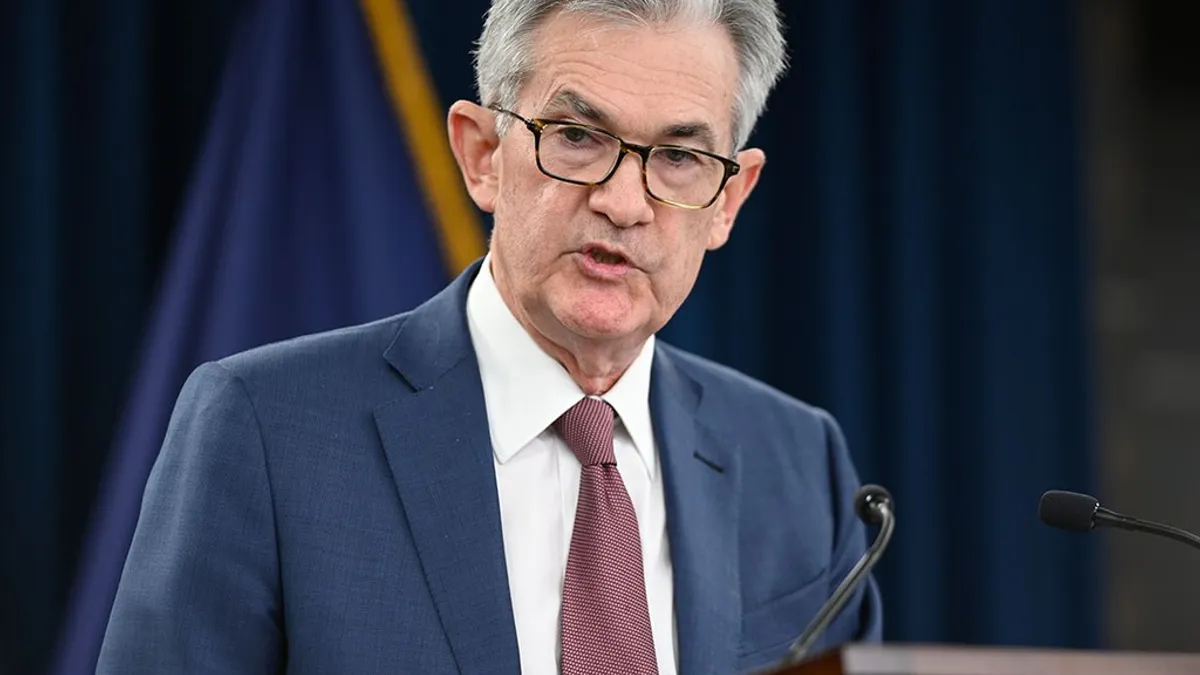When Mohit Daswani was head of finance and strategy at Square in 2017, the fast-growing payments company was at an inflection point. It had shown Wall Street it could grow like a rocket but now it needed to demonstrate it could also grow its margins and make money for investors.
For Daswani, the challenge was to manage that pivot in a way that didn’t prevent the company from going back to growth mode when the time came to reinvest in new products.
"We said, 'Look, our focus was to go deliver you profitability dollars,'" Daswani said in a CFO Thought Leader podcast. "But we’re going to retain the right to be flexible on the margin we’re delivering, which means we’ll give you that dollar of profitability, but if our revenue growth is higher than what we guided, we’re going to invest that back into the business."
Making that pivot is always a delicate maneuver for fast-growth companies, and Square pulled it off well, Daswani said.
"If you looked at it from IPO in 2015, to 2017, when I got there, the margins went from … single digits to 14%, so a rapid expansion," he said. "At that point, the stock started responding quite nicely. That helped build the confidence."
Prior to 2018, the company was growing margins at a steady 5-6% a year, and it was leveraging its flexibility to put capital to work in the business efficiently, Daswani said. In 2018-2019, the focus shifted to EBITDA dollar growth, with more moderate margin expansion of about 2% annually. It was spending on marketing when needed and also showing investors it continued to innovate from a product perspective.
Today, Daswani is with ThoughtSpot, another fast-growing tech company, which he joined in January as its first CFO. The company provides c-suite executives and frontline business users with a natural language, AI-driven platform to extract business intelligence from internal and external data.
Before the downturn hit, Daswani was assessing how he would build his teams, processes and systems so they can scale along with the company without requiring him or a successor to implement a full-scale transformation.
"Why do you have to go through a fundamental transformation a decade in?" he said. "Can you be building ... in a way that’s modular and scalable and gives you the system you’re going to need as you grow your business? I know platforms change, and the cloud and new capabilities emerge. I guess it’s natural. Maybe it's unavoidable. But for me, one of the things I'm trying to do, in the design of the organization and design of our systems, is be very intentional that we have some things that are going to scale with us."
Trust and intentionality
As CFO, Daswani's portfolio is broader than many in the role. In addition to his finance and accounting teams, he oversees legal, IT, corporate development and strategy.
The variety makes his job interesting but it also gives him a chance to set up the strategy team so it’s integral to company planning and not just creating plans that don’t get put into action.
"I want it to be a group that is speaking to our strategic direction and helping to move the needle, not just a passive organization," he said.
For Daswani, who began as a private equity banker before moving to the operational side as a finance executive, first at PayPal and then Square, one of the CFO's main roles is to be part of the organization that drives business and doesn’t just operate as a back-office check on ambitious growth plans.
"As CFO, you can't just say no," he said. "You say no too many times and you’re not going to be in the role. You won't be seen as an enabler. The discipline is to find creative solutions while working within the constraints."
Daswani said the creativity of the office comes from finding ways to say yes while protecting the company as a fiduciary. "You’ve got to be there to think ... how to move things around from a budget perspective, how to generate the top line and then free up resources for investment and align interests," he said. "That’s the kind of creativity I want to have on the team, but that takes a certain intellectual curiosity, ambition to have an impact, and the grit to just go in there and get the data and go figure it out."
Along with the creativity, Daswani says the CFO needs to build trust with business partners.
"It's a two-way street," he said. “When there’s a budget request, come in with what you need. Let’s talk through it. Show me the why. If you’re growing the team, how is your team currently used? What are people working on? If you finish up delivering on a product, didn’t you just free up a bunch of people from that?”
Daswani said it’s incumbent upon him to shoot straight. “Here are the trade-offs we’re going to have to make,” he said. “Are we going to put that incremental dollar in marketing or are we going to put it in product? And let’s bring stakeholders around the table and make that decision. We have to decide, ‘Yeah, we’re not going to grow margins right now; we’re going to instead invest more in the business, because we think that’s the right thing to do and now let’s go explain that to our board or whoever our stakeholders are.'”
As his company embarks on a difficult chapter navigating the downturn, Daswani will have a chance to test his plans against a global event that will be uniquely challenging.
"We’ve had SARS and other global pandemics that have come along," Daswani told CFO Dive last month. "There’s a human toll, which is scary, but it will pass. And when it recedes, we will see our way through, absorb the impact, and move forward."






















